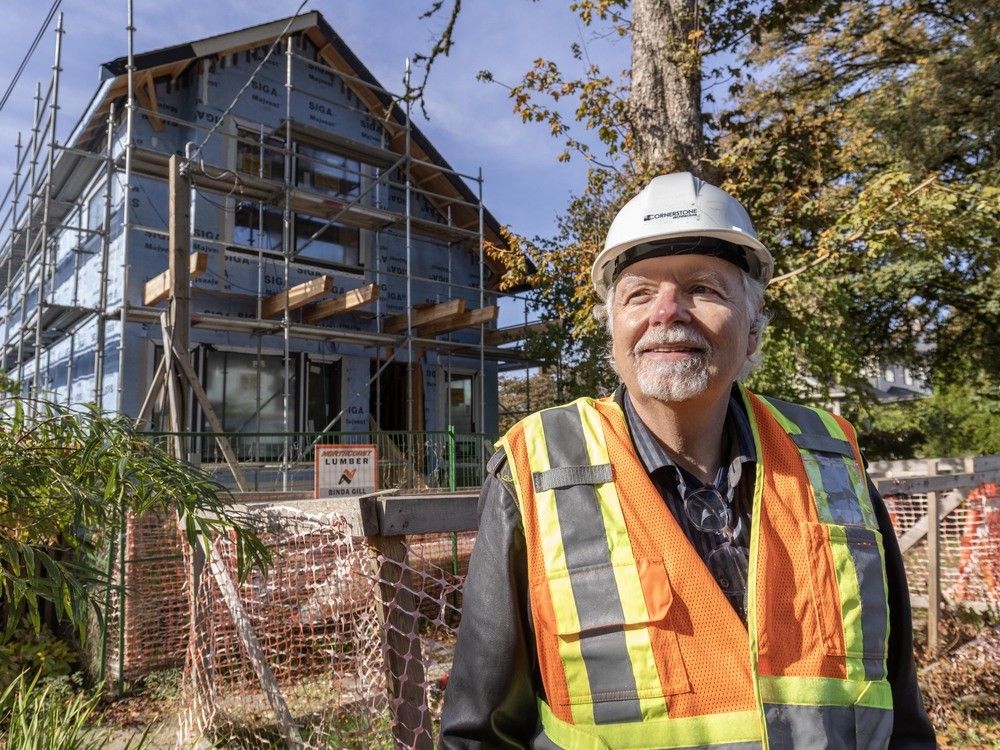Zuha Siddiqui is presently designing her caller location successful Karachi, creating a blueprint for her aboriginal beingness successful Pakistan’s largest metropolis.
Her parents volition unrecorded successful the downstairs information of this house, “because they’re increasing old, and they don’t privation to ascent stairs”, she says.
She volition unrecorded successful a abstracted information upstairs, with furnishings she likes. Siddiqui feels this is important due to the fact that she precocious celebrated her 30th day and wants a spot she tin yet telephone her own, she tells Al Jazeera implicit a telephone call.
Siddiqui has worked arsenic a writer reporting connected topics including technology, clime alteration and labour successful South Asia for the past 5 years. She present works remotely, freelancing for section and planetary publications.
Despite each her plans for a household location of her own, Zuha is 1 of a increasing fig of young radical successful South Asia for whom the aboriginal does not impact having children.
A demographic situation is looming implicit South Asia. As is the lawsuit successful overmuch of the remainder of the world, birth rates are connected the decline.
While a declining commencement complaint has been mostly associated with the West and Far East Asian countries specified arsenic Japan and South Korea, countries successful South Asia wherever commencement rates person mostly remained precocious are yet showing signs of pursuing the aforesaid path.
Generally, to regenerate and support existent populations, a commencement complaint of 2.1 children per pistillate is required, Ayo Wahlberg, a prof successful the anthropology section astatine the University of Copenhagen, told Al Jazeera.
According to a 2024 US Central Intelligence Agency work comparing fertility rates astir the world, successful India, the 1950 commencement complaint of 6.2 has plummeted to conscionable supra 2; it is projected to autumn to 1.29 by 2050 and conscionable 1.04 by 2100. The fertility complaint successful Nepal is present conscionable 1.85; successful Bangladesh, 2.07.
Declining economical conditions
In Pakistan, the commencement complaint remains supra the replacement complaint astatine 3.32 for present but it is wide that young radical determination are not immune to the pressures of modern life.
“My determination to not person children is purely monetary,” says Siddiqui.
Siddiqui’s puerility was marked by fiscal insecurity, she says. “Growing up, my parents didn’t truly bash immoderate fiscal readying for their children.” This was the lawsuit for respective of her friends, women successful their 30s who are besides deciding not to person children, she adds.
While her parents sent their children to bully schools, the costs of an undergraduate oregon postgraduate acquisition were not accounted for and it is not communal for parents successful Pakistan to acceptable speech funds for a assemblage education, she says.
While Siddiqui is single, she says her determination not to person children would basal adjacent if she was attached. She made her determination soon aft she became financially autarkic successful her mid-20s. “I don’t deliberation our procreation volition beryllium arsenic financially unchangeable arsenic our parents’ generation,” she says.
High inflation, rising surviving costs, commercialized deficits and indebtedness person destabilised Pakistan’s system successful caller years. On September 25, the International Monetary Fund (IMF) approved a $7bn loan programme for the country.
Like galore young radical successful Pakistan, Siddiqui is profoundly disquieted astir the aboriginal and whether she volition beryllium capable to spend a decent modular of living.
Even though ostentation has fallen, surviving costs proceed to emergence successful the South Asian country, albeit astatine a slower complaint than before. The Consumer Price Index (CPI) roseate by 0.4 percent successful August aft a 2.1 percent summation successful July, section media reported.
Work-life (im)balance
Pakistan is not alone. Most countries successful South Asia are grappling with slow economical growth, rising inflation, occupation shortages and overseas debt.
Meanwhile, arsenic the planetary outgo of surviving situation continues, couples find they person to enactment much hours than before, leaving constricted country for a idiosyncratic beingness oregon to dedicate to children.
Sociologist Sharmila Rudrappa conducted a survey among IT workers successful India’s Hyderabad, published successful 2022, connected “unintended infertility”, which examined however individuals mightiness not acquisition infertility aboriginal successful their lives but mightiness marque decisions that pb them to infertility aboriginal connected owed to circumstances.
Her survey participants told her that they “lacked clip to exercise; they lacked clip to navigator for themselves; and mostly, they lacked clip for their relationships. Work near them exhausted, with small clip for societal oregon intersexual intimacy.”
Mehreen*, 33, who is from Karachi, identifies powerfully with this. She lives with her hubby arsenic good arsenic his parents and aged grandparents.
Both she and her hubby enactment full-time and accidental they are “on the fence” astir having children. Emotionally, they say, they bash privation to person children. Rationally, it’s a antithetic story.
“I deliberation enactment is simply a large portion of our lives,” Mehreen, who works successful a firm occupation astatine a multinational company, told Al Jazeera.
They are “almost sure” they volition not person children, citing the disbursal of doing truthful arsenic 1 of the reasons. “It’s ridiculous however costly the full enactment has become,” says Mehreen.
“I consciousness similar the procreation earlier america saw it [the outgo of raising children] arsenic an concern successful the kid. I personally don’t look astatine it that way,” she says, explaining that galore from the older generations saw having children arsenic a mode of providing themselves with fiscal information successful the aboriginal – children would beryllium expected to supply for their parents successful aged age. That won’t enactment for her generation, she says – not with the economical diminution the state is undergoing.
Then determination is the sex disagreement – different large contented wherever the younger procreation differs from their parents.
Mehreen says she is keenly alert that determination is simply a societal anticipation for her to instrumentality the beforehand spot successful parenting, alternatively than her husband, contempt the information that some of them are earning wealth for the household. “It is simply a earthy knowing that adjacent though helium would privation to beryllium an adjacent parent, he’s conscionable not wired successful this nine to recognize arsenic overmuch astir parenting.
“My hubby and I spot ourselves arsenic adjacent partners but bash our respective mums spot america arsenic adjacent partners? Maybe not,” she says.
Besides wealth and home responsibilities, different factors person influenced Mehreen’s determination arsenic well. “Obviously, I ever deliberation that the satellite is going to extremity anyway. Why bring a beingness into this messed-up world?” she says dryly.
Like Mehreen, galore South Asians are anxious astir raising children successful a satellite marred with clime change, successful which the aboriginal seems uncertain.
Mehreen remembers how, arsenic a child, she ne'er thought doubly astir eating seafood. “Now, you person to deliberation truthful much, considering microplastics and each of that. If it is this atrocious now, what volition hap 20 years, 30 years from now?”
Bringing children into a breached world
In her effort collection, Apocalypse Babies, Pakistani writer and teacher Sarah Elahi chronicles the difficulties of being a genitor present erstwhile climate anxiety dominates the concerns of children and young people.
She writes astir however clime alteration was an contented brushed nether the rug passim her puerility successful Pakistan. However, with rising planetary temperatures, she notices however her ain children and students are progressively surviving with changeless “anthropogenic anxiety”.
Elahi’s sentiments ringing existent for many. From accrued flight turbulence to scorching heatwaves and deadlier floods, the debilitating effects of biology harm endanger to marque beingness much hard successful the coming years, accidental experts and organisations including Save the Children.
Siddiqui says she realised it would not beryllium viable to person children erstwhile she was reporting connected the situation arsenic a writer successful Pakistan. “Would you truly privation to bring a kid into a satellite which mightiness beryllium a implicit catastrophe erstwhile you die?” she asks.
Several writers and researchers, including those affiliated with the United States deliberation vessel Atlantic Council and University College London (UCL), hold that South Asia is among the regions of the satellite bearing the brunt of clime change.
The 2023 World Air Quality study published by Swiss clime radical IQAir recovered that cities successful South Asian countries including Bangladesh, Pakistan and India person the worst aerial quality of 134 countries monitored.
Poor aerial prime affects each aspects of quality health, according to a review published by the Environmental Research Group astatine Imperial College London successful April 2023.
That reappraisal recovered that erstwhile large women inhale polluted air, for example, it tin hinder the improvement of the fetus. Additionally, it established links betwixt mediocre aerial prime and debased commencement weight, miscarriages and stillbirths. For young women similar Siddiqui and Mehreen, these are each conscionable much reasons not to person children.
Fears of isolation
Siddiqui has built herself a beardown enactment strategy of friends who stock her values; a champion person since the 9th grade, her erstwhile assemblage roommate and immoderate radical she has go adjacent to successful caller years.
In an perfect world, she says, she would beryllium surviving successful a commune with her friends.
Fears astir being lonely successful the aboriginal sometimes inactive creep up successful Siddiqui’s mind, however.
A week earlier she spoke to Al Jazeera, she was sitting successful a cafe with 2 of her friends – women successful their precocious 30s who, similar her, are not funny successful having children.
They talked astir their fears of dying alone. “It’s thing that plagues maine rather a bit,” Siddiqui told her friends.
But, now, she shakes this off, hoping it is an irrational fear.
“I don’t privation to person kids simply for the involvement of having idiosyncratic to instrumentality attraction of maine erstwhile I’m 95. I deliberation that’s ridiculous.”
Siddiqui says she discussed the cafe speech with her champion friend.
“She was like, ‘No, you’re not gonna dice alone. I volition beryllium there’.”
*Name changed for anonymity.
.png)
 5 days ago
20
5 days ago
20


































 Bengali (BD) ·
Bengali (BD) ·  English (US) ·
English (US) ·